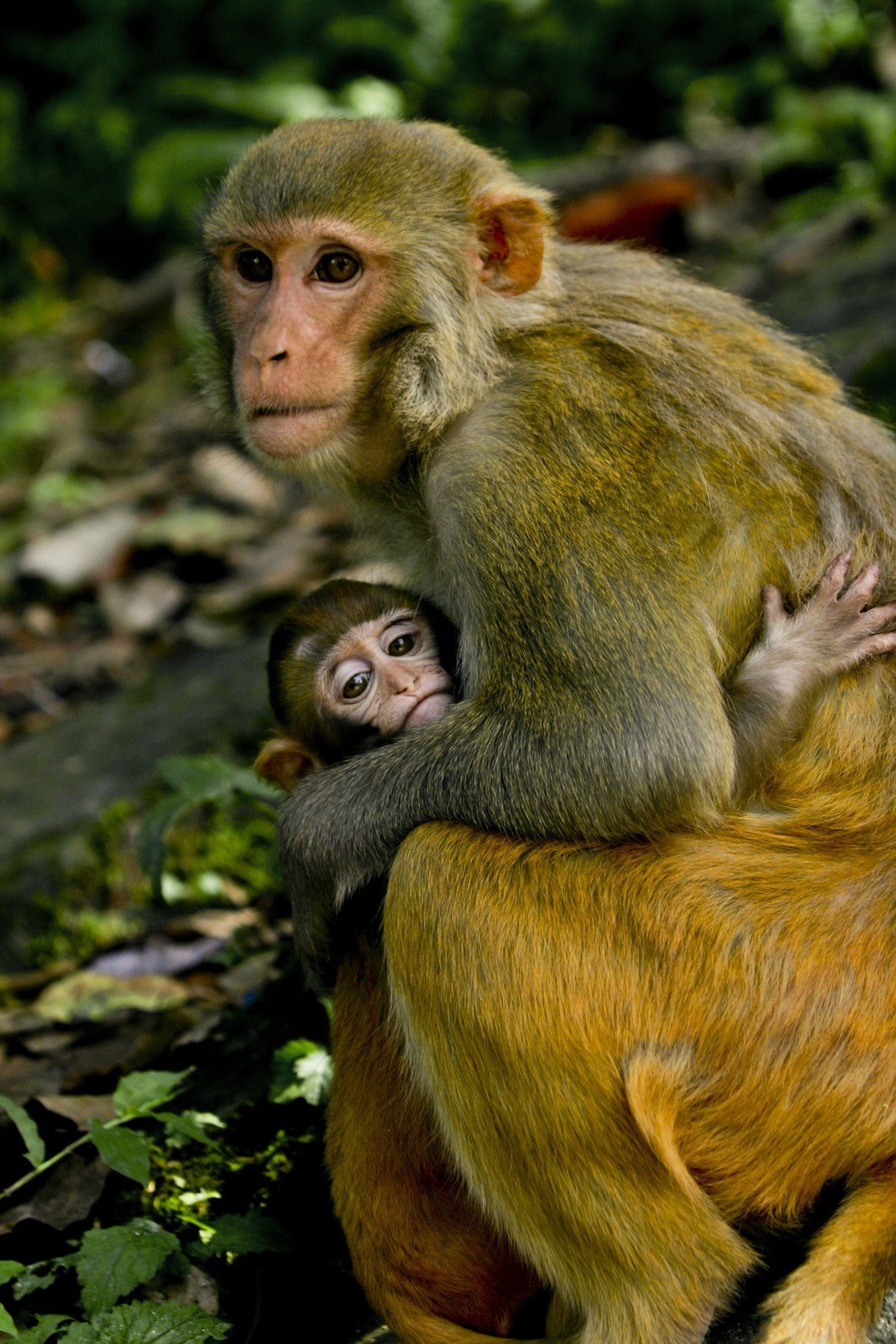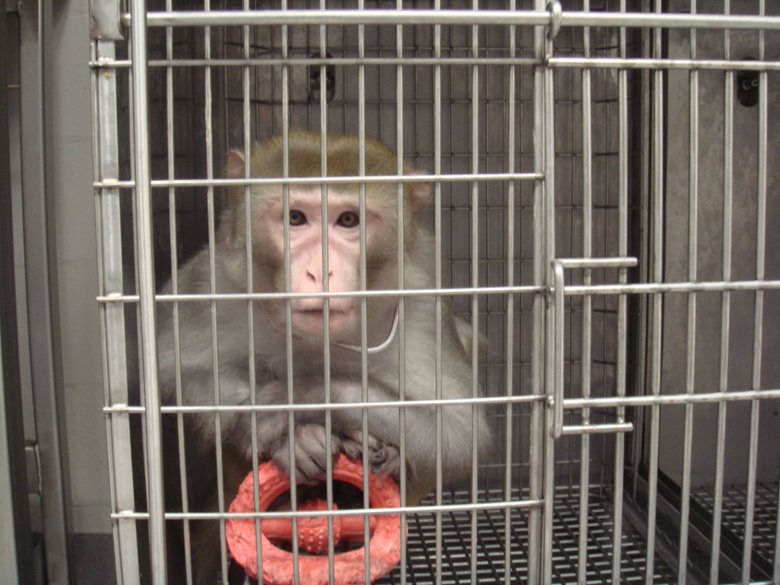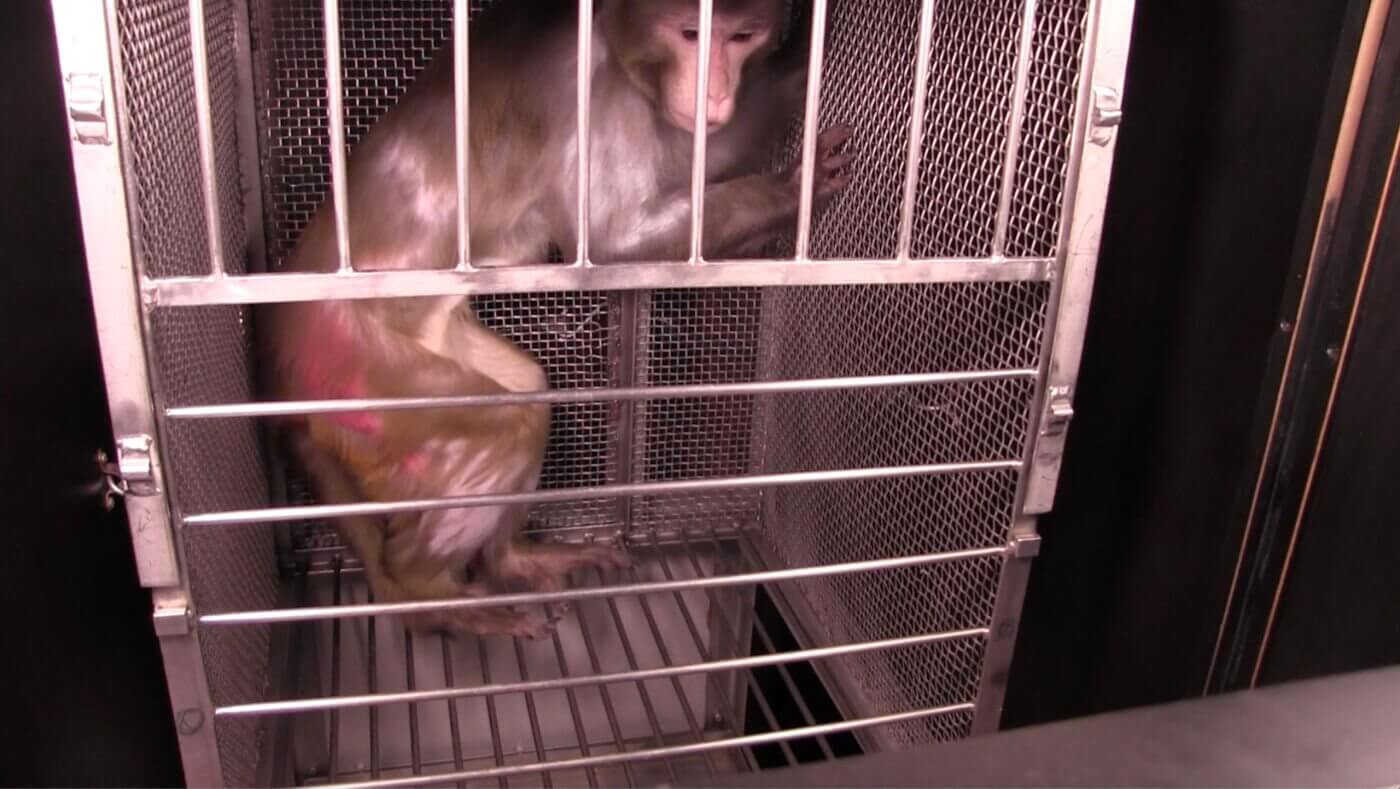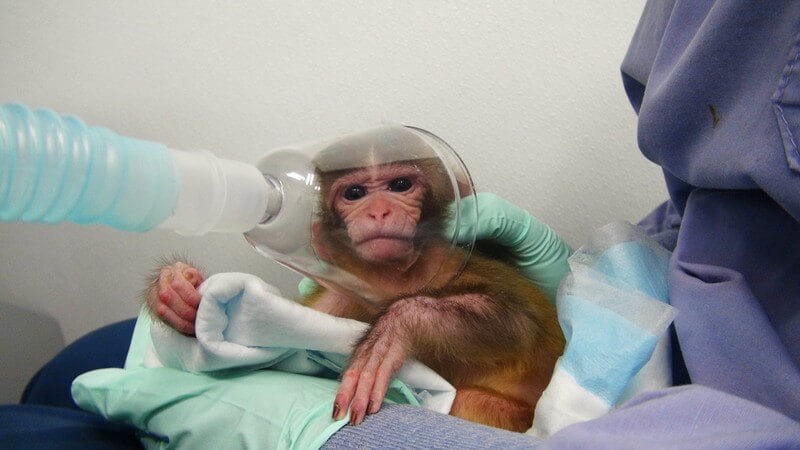Monkeys Used in Experiments
Monkeys are very smart and playful. In nature, they spend all their time with their families, swinging from branch to branch and climbing—and many can even swim! They explore their surroundings, make homes, form meaningful relationships, care for their babies, and have full lives.

Many Monkeys Are Suffering in Laboratories
More than 106,000 primates are kept in U.S. laboratories every year. Baby monkeys born in labs are torn from their mothers’ arms, often when they’re only a few days old, and never get to feel the warmth of the sun on their faces or climb trees, as they would in their natural home.

Monkeys who aren’t born in laboratories are kidnapped from their families in nature and put on breeding farms. The babies they give birth to there are packed into small crates—terrified and confused—placed in the cargo holds of passenger airplanes, and flown overseas, where they’ll spend the rest of their lives being exploited.
What Life Is Like for Monkeys Used in Experiments
Monkeys are kept inside small cages in often windowless rooms, where they sit alone and mourn the loss of their family and friends. They’re prisoners, with barely enough room to move around or lie down comfortably. If they’re lucky, they’ll be given a plastic toy or a slice of apple. Experimenters may shock them or shove tubes up their noses, down their throats, or into their stomachs. The experimenters may even withhold food or water unless the animals cooperate. This is a very scary, painful, and lonely life for a monkey.

No animal deserves to be treated the way monkeys are treated in laboratories.

You Can Help Stop Monkeys From Being Used in Experiments
Help all animals used in experiments by making sure your family buys and uses only products that aren’t tested on animals and never supports companies that do test on animals! Pledge to be cruelty-free, and ask your friends to do the same.


Under 13? Ask your parents bee-fore you continue!